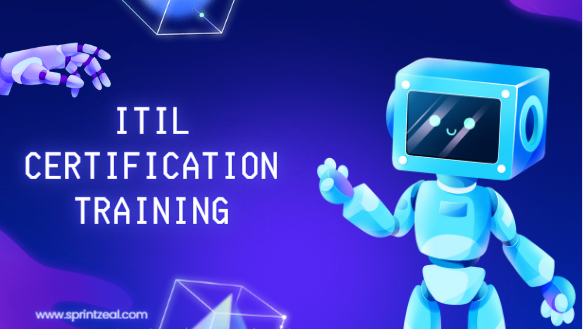In the dynamic landscape of Information Technology (IT), organizations are constantly seeking ways to enhance their service delivery, optimize processes, and ensure the seamless functioning of their IT infrastructure. The Information Technology Infrastructure Library (ITIL) has emerged as a globally recognized framework that provides a systematic approach to IT service management. ITIL certifications have become a valuable asset for IT professionals, helping them stay abreast of industry best practices and enabling organizations to deliver high-quality IT services. In this article, we will delve into the world of ITIL certification, exploring its types and the myriad benefits it offers to individuals and organizations alike.
Understanding ITIL Certification
ITIL, developed by the United Kingdom’s Office of Government Commerce (OGC), is a set of best practices for IT service management (ITSM) that focuses on aligning IT services with the needs of the business. ITIL provides a comprehensive framework that covers various aspects of IT service delivery, including service strategy, service design, service transition, service operation, and continual service improvement.
ITIL certification serves as a testament to an individual’s understanding and proficiency in applying ITIL practices within an organizational context. These certifications are globally recognized and are highly sought after by IT professionals aiming to enhance their skills and career prospects.
Types of ITIL Certification
The ITIL certification scheme is structured in a modular fashion, allowing individuals to progress through different levels of expertise. As of the last knowledge update in January 2022, the ITIL certification pathway includes the following levels:
- ITIL Foundation:
- The entry-level certification introduces candidates to the fundamental concepts and key elements of the ITIL framework.
- It is designed for individuals who require a basic understanding of ITIL or those working in roles that contribute to IT service management.
- ITIL Practitioner:
- Building on the foundation level, ITIL Practitioner focuses on adopting and adapting ITIL principles in practical scenarios.
- It equips professionals with the skills to apply ITIL concepts within their organizations, ensuring real-world effectiveness.
- ITIL Intermediate:
- This level is divided into two streams – Service Lifecycle and Service Capability.
- Service Lifecycle includes modules such as Service Strategy, Service Design, Service Transition, Service Operation, and Continual Service Improvement.
- Service Capability modules delve deeper into specific ITIL processes and functions, like Operational Support and Analysis, Release, Control and Validation, and more.
- ITIL Expert:
- Achieving ITIL Expert status requires the completion of a range of intermediate modules.
- It signifies a high level of understanding and expertise in implementing ITIL practices across the entire service lifecycle.
- ITIL Master:
- The highest level of ITIL certification, ITIL Master, is awarded to individuals who can demonstrate the application of ITIL principles in a real-world, non-prescriptive context.
- It requires candidates to showcase their ability to create and deliver IT services that meet business goals.
Benefits of ITIL Certification
- Enhanced Career Opportunities:
- ITIL certifications are widely recognized by organizations globally, making certified professionals highly desirable in the job market.
- Employers often prioritize candidates with ITIL certifications, as it demonstrates a commitment to best practices in IT service management.
- Improved Job Performance:
- ITIL certifications equip professionals with a deep understanding of IT service management processes, enabling them to contribute effectively to the improvement of IT services within their organizations.
- Certified individuals are better equipped to identify and address challenges, resulting in improved overall job performance.
- Increased Efficiency and Productivity:
- The ITIL framework promotes a systematic approach to IT service management, leading to more efficient and productive service delivery.
- Organizations that implement ITIL practices often experience streamlined processes, reduced service downtime, and improved resource utilization.
- Alignment with Business Objectives:
- ITIL emphasizes the alignment of IT services with the business goals and objectives of an organization.
- Certified professionals are trained to understand and prioritize business needs, ensuring that IT services contribute directly to the success of the overall business strategy.
- Enhanced Customer Satisfaction:
- By following ITIL best practices, organizations can deliver more reliable and consistent IT services, leading to increased customer satisfaction.
- ITIL’s customer-centric approach ensures that IT services are designed and delivered with the end-user in mind.
- Risk Management and Continual Improvement:
- ITIL places a strong emphasis on continual service improvement, helping organizations identify and address areas for enhancement.
- Certified professionals are equipped with the tools and knowledge to proactively manage risks and continually refine IT services to meet changing business needs.
- Global Recognition:
- ITIL certifications are recognized globally, providing professionals with a universally accepted qualification.
- This global recognition is particularly advantageous for individuals seeking international career opportunities.
Conclusion
In conclusion, ITIL certification is a powerful tool for IT professionals and organizations aiming to excel in IT service management. The comprehensive framework, structured certification levels, and the associated benefits make ITIL a valuable investment for anyone involved in IT service delivery. As organizations increasingly recognize the importance of aligning IT services with business objectives, ITIL certification remains a key differentiator in the competitive IT landscape. Whether you are an entry-level professional or a seasoned IT expert, ITIL certification offers a structured path to enhance your skills, contribute to organizational success, and unlock new career opportunities in the ever-evolving field of Information Technology.








